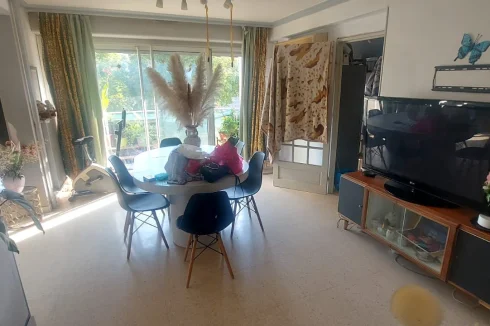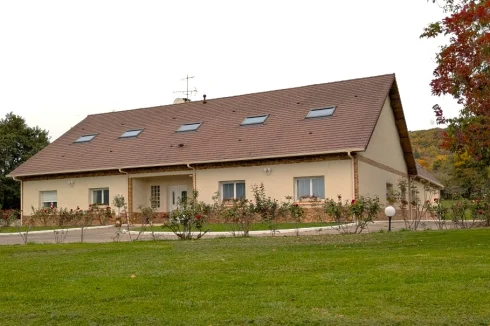French Income Tax Return 2019
Tuesday 09 April 2019
Income tax collection procedures in France have been streamlined in recent years, but not so the task of completing the annual tax return.
POSTSCRIPT: We have published a guidance note on the process for the 2020 tax return at French Income Tax Return 2020 - Forms so the following page has been superceded.
As we have previously reported in our Newsletter, over the past couple of years there has been a reconfiguration of income tax collection procedures in France.
Since January 2018 a single rate ‘flat tax’ (Prélèvement Forfaitaire Unique) has been in place for savings interest, dividends and the sale of shares. The tax is deducted at source. You can read about the PFU in our Guide to Taxation of Savings Interest and Investment Income in France.
And since January 2019, deduction at source is more widespread, with the introduction of 'prélèvement à la source' on French salaried and pension income, effectively a form of ‘PAYE’, with which British readers will be aware, and a practice adopted by most other countries in Europe. You can read more about this change and what it means for 2018 income in our article Taxation of Income in France 2019.
The changes mean that for many French households their income each year is now reported directly to the tax authority by their employer, pension provider or bank/financial institution.
As a result the government has stated they intend to abolish the need for income tax returns to be made for some households, with Gérald Darmanin the Minister of Public Accounts announcing that from 2020 :"If their tax position does not change, as is the case for more than five million French households, there will be no more declarations to be made from next year." It remains to be seen how this proposal will be adopted.
For the time being, every household still has to submit an annual income tax declaration.
Not only do there remain several forms in place (and depending on your income and circumstances you are normally obliged to complete a number of them), the forms themselves are typically perplexing, even to French nationals.
In general, there is not a great deal that you need to enter, and some is already entered automatically by the tax authority. The bigger problem is that you need know which boxes to complete, which is not always self-evident.
The reporting of international pension income is a particular problem, due to the exemption that applies from social charges to those on an S1, and the exemption from French income tax and social charges of government service pensions. Each year we hear of many pensions that have been incorrectly assessed, either because of reporting errors, or because the local tax office is not familiar with the rules. The same often happens with rental income.
The forms now have to be completed on-line, so taxpayers also have to navigate their way around the architecture of a French government website, a challenge in itself. Only if this is your first year of making a tax declaration, or you have no access to the internet, or you are otherwise simply unable to accomplish the task are you entitled to make a paper return. In the latter case you risk a small fine, although it is not always applied.
Although there are guides available to complete the forms, they need to be used with care, as the forms for this year have only just been published, the format of the forms is often changed from year to year, yet the guides have been on the market for weeks. That is particularly important this year, as the forms have been substantially changed to take account of the flat tax and deduction at source, and the tax credit that will apply. In one popular English language guide we have read, only those forms for 2018 have been used, and a comparison with those for 2019 shows significant differences from last year.
If your circumstances are complicated then clearly you would be wise to seek professional support, particularly for the first year of completion, or where your circumstances have changed significantly.
In more straightforward cases simply visit your local tax office, as, despite the requirement for on-line completion, the offices are open to the public (some even do 'road-shows') and officials will help you complete the forms.
However, ensure you understand some of the terminology and rules that apply; officials may be willing to help you complete the forms, but few are likely to offer tax advice. Moreover, the level of understanding of tax rules by help-desk officials should not be over-estimated, particularly as they effect international taxpayers. The links at the bottom of this page to our Guide to Income Tax in France provide a substantial amount of information.
Thankfully, even if you do get it wrong it is not the end of the world, for this year most income is exempt from income tax, as we set out in our article Income Tax Payable in 2019. You can also later modify your return.
So what are the forms you may need to complete?
Form 2042 – Declaration des Revenus
This is the main form, which has several annexes, as we describe below.
If you have previously made a tax declaration some of it will have been pre-completed (préremplie) by the tax authority. It includes on it all family and other personal information. The information on family circumstances will determine how you are taxed. Accordingly, if your family circumstances have changed (child, death, divorce, marriage) these changes need to be recorded on this form.
Form 2042C – Revenu complémentaire
This is a rather complicated and diverse form that is mainly for taxpayers who have received dividend or similar investment income, and for those who have realised capital gains on share sales.
In addition, it is for those who have made tax-exempt real estate investments eg, Pinel, Duflot, Scellier, Malraux. It is also used to record capital gains on the sale of your main home (although exempt from income tax).
If you receive a foreign salary or pension that is exempt from taxation in France, but used to obtain the tax rate on other income, then it also needs to be entered here.
Form 2042C Pro – Revenu Complementaire – Professions Non-Salariées.
This for is for those who run a business, taxed either as BIC (Bénéfices Industriels et Commerciaux) or BNC (Bénéfice Non Commercial), and those who run an agricultural business.
In addition, those who have income from furnished lettings (including a chambre d'hote), even if not business registered, are required to complete this form.
It includes micro-entrepreneurs who have opted for a fixed rate of income tax payable with their social security contributions (versement libératoire).
Those business owners who have adopted the régime réel are also obliged to report separately their results by the use of Form 2031 for BIC earnings and Form 2035 for BNC earnings.
Form 2042 RICI - Réductions d'impôt /Crédits d'impôt
The form is used if you have an entitlement to a reduction in tax, or a tax credit.
This might apply if you have made a charitable donation, children at school or in further or higher education, child-care, home-help, energy conservation, and elderly adaptations in the home.
Needless to say, there are various conditions that apply to these entitlements.
Form 2044 - Déclaration des revenus fonciers
The form is used for the declaration of income from unfurnished accommodation, but only if you have adopted the régime réel form of taxation.
The income includes that from investments in property funds, such as SPCI and FPI.
Form 2047 - Revenus encaissés à l'étranger
Used to declare income that was banked abroad by a resident of France. It includes all types of income, even though it may not be taxable in France.
Form 3916 - Déclaration par un résident d'un compte ouvert hors de France
If you hold bank accounts outside of France you are obliged to declare them, even though they may be inactive. Some local offices do not insist on an annual declaration if there is no change, but best to agree any variation with them in writing.
Form 2042 NR - Départ à l'étranger ou retour en France
You must submit this form if you left France in 2018 and received, after your departure, income from French sources.
Similarly, you need to submit it if you relocated to France in 2018 and received, before your arrived, income from French sources.
Thank you for showing an interest in our News section.
Our News section is no longer being published although our catalogue of articles remains in place.
If you found our News useful, please have a look at France Insider, our subscription based News service with in-depth analysis, or our authoritative Guides to France.
If you require advice and assistance with the purchase of French property and moving to France, then take a look at the France Insider Property Clinic.





